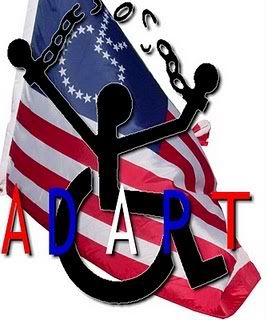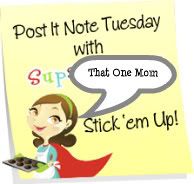The second time I took psyc 403 [child psychology], my adjunct professor (a full time school psychologist who adopted a son years ago who has significant psychological disabilities) started in on how Drs are keeping premature babies alive earlier and earlier. In doing so they are taking advantage of parent's vulnerability, he says, for their own personal professional gain (so that they can publish the case study) and NOT looking out for the best interest of the child. He also believes that if there becomes prenatal testing for psychiatric disabilities it should become the norm to perform preimplantation genetic diagnosis. Society would be saving those babies from a life of constant suffering, not just physically, but because of how pervasive ableism (he didn't use that word) is in this society. Forget about working to change society, just kill off those people. Reintroduce eugenics [my interpretation, not his wording].
I was sitting in my chair in class that day... Offensive language can come in many forms and this is much more hurtful to me then calling me a cripple, invalid, spaz, retard, a wheelchair (what, am I not a person?).
~~~~~~~~~~~~~~~~~~~~~~~
I am apparently having significant difficulty devising coping mechanisms for my psychiatric issues that are age appropriate. Coloring in class is not ok, but doodling on paper with a pen is ok. It's stupid I know, and I've bitched about it as recently as a week and a half ago when a friend said to me
As a non-disability example, the year before I transferred the students in the GLBTQ club on campus voted to change their name to the Queer Student Union. I don't know what it was before. There was apparently a lot of backlash from that decision and the university almost banned the name change.
My personal examples are that I love referring to myself as a crip and a spaz, will say things like "I have a few screws loose in my head, but that's ok because I have a spare one stored in my ankle (surgery) in case one falls out" and something like "I was crazy busy--wait, I'm crazy all the time." Recently my mom called me "a nut." My reply? "We already knew I was certifiably nuts." Therese agrees (also read the description of that one and look @ 1:14 of this one first).
If someone implies that my life is less valuable or I'm out and about and hear someone call someone a spaz as a put down I get an instant pit in my stomach. I try hard to explain to people why using the r-word is just as hurtful as calling someone the n-word or saying "that's so gay." "I'm not calling a person a r----d, I'm calling a thing r----ed," I get often. It doesn't matter. "that's so gay" is often used to describe a thing, not a person, but somehow people have been educated that this is not ok.
Using words in their original intentionality does not have a hurtful sting. But it's gotten to the point where people don't even know what it is, so they can't use them this way. Spaz comes from spastic cerebral palsy, my official diagnosis since the age of one. Mental retardation (now intellectual disability) used to be a pure medical diagnosis before it became a put down. Before that people were referred to as feeble-minded. Gay used to mean happy. It's just that these words are no longer used with their original intentionality, things might be fine if they were.
Therese says that "angles can fly because they take themselves lightly." I think that my use of seemingly derogatory words (with their original intentionality) demonstrates that I am comfortable with who I am. The start of my use of these words coincided with the beginning of my journey to finally accept the impact of my limitations in their entirety. That is a GOOD thing. I must take myself lightly. My very survival depends on it. I might possibly be the most happy I have ever been and my use of these words definitely had a positive impact on this, as odd as that may sound. Using these words signifies that I've taken ownership of who I am and instead of slinking away because I internalize stigma. I have taken ownership of the hurt and turned it around to use as a source of empowerment. I am a PROUD crip.
My intentionality behind frequently using "hurtful" words in everyday conversation is to illustrate my light-heartedness, my comfortableness, that my disabilities are no big deal to me. That's so different.
I was sitting in my chair in class that day... Offensive language can come in many forms and this is much more hurtful to me then calling me a cripple, invalid, spaz, retard, a wheelchair (what, am I not a person?).
~~~~~~~~~~~~~~~~~~~~~~~
I am apparently having significant difficulty devising coping mechanisms for my psychiatric issues that are age appropriate. Coloring in class is not ok, but doodling on paper with a pen is ok. It's stupid I know, and I've bitched about it as recently as a week and a half ago when a friend said to me
"It's all about intentionally. If you come to class with markers it's obvious that your intention is to color, but if you come to class with a pen and a few extra pieces of paper, your intention is to take notes. There's a fine line and it's stupid."My email the next day (quoted above), coupled with her words, gave me a lightbulb moment. This is the best way to explain how words can be both hurtful and empowering. It's the intentionality behind them.
As a non-disability example, the year before I transferred the students in the GLBTQ club on campus voted to change their name to the Queer Student Union. I don't know what it was before. There was apparently a lot of backlash from that decision and the university almost banned the name change.
My personal examples are that I love referring to myself as a crip and a spaz, will say things like "I have a few screws loose in my head, but that's ok because I have a spare one stored in my ankle (surgery) in case one falls out" and something like "I was crazy busy--wait, I'm crazy all the time." Recently my mom called me "a nut." My reply? "We already knew I was certifiably nuts." Therese agrees (also read the description of that one and look @ 1:14 of this one first).
If someone implies that my life is less valuable or I'm out and about and hear someone call someone a spaz as a put down I get an instant pit in my stomach. I try hard to explain to people why using the r-word is just as hurtful as calling someone the n-word or saying "that's so gay." "I'm not calling a person a r----d, I'm calling a thing r----ed," I get often. It doesn't matter. "that's so gay" is often used to describe a thing, not a person, but somehow people have been educated that this is not ok.
Using words in their original intentionality does not have a hurtful sting. But it's gotten to the point where people don't even know what it is, so they can't use them this way. Spaz comes from spastic cerebral palsy, my official diagnosis since the age of one. Mental retardation (now intellectual disability) used to be a pure medical diagnosis before it became a put down. Before that people were referred to as feeble-minded. Gay used to mean happy. It's just that these words are no longer used with their original intentionality, things might be fine if they were.
Therese says that "angles can fly because they take themselves lightly." I think that my use of seemingly derogatory words (with their original intentionality) demonstrates that I am comfortable with who I am. The start of my use of these words coincided with the beginning of my journey to finally accept the impact of my limitations in their entirety. That is a GOOD thing. I must take myself lightly. My very survival depends on it. I might possibly be the most happy I have ever been and my use of these words definitely had a positive impact on this, as odd as that may sound. Using these words signifies that I've taken ownership of who I am and instead of slinking away because I internalize stigma. I have taken ownership of the hurt and turned it around to use as a source of empowerment. I am a PROUD crip.
My intentionality behind frequently using "hurtful" words in everyday conversation is to illustrate my light-heartedness, my comfortableness, that my disabilities are no big deal to me. That's so different.

















3 comments:
When Glenda Watson Hyatt was redefining her cerebral palsy, her way, she reflected on the difference between an injury and damage.
It depends on whether you consider the brain a living thing or not.
It also had an element of fixability, which she did address, but lightly.
Also love Therese's words about taking things lightly and how angels do it. (Angles probably do too! But they're meant to carry heavy things, especially in engineering).
And we sort of engineer our environment to get the responses we want.
Highlighters are good to colour and take notes.
I can understand the Queer Union because it can be very inclusive of all sexualities.
I felt so horrible it made me sick to my stomach when I first found out where 'spaz' came from. It's something that I've heard in my family so often, I really didn't consider the linkage. Likewise for 'lame', though that has even more personal impact for me, being a gimp.
I'm still trying to work out how to educate my family on these words. I think I may have gotten to my father at least somewhat when I really went off on him about calling me lame. I'd been bracing and taping my ankles for a hike, and he said something jokingly about how lame I was, and I just...snapped. It wasn't funny. It was never funny. And I was sick and tired of him making fun of the fact that my body didn't function the way I wanted it to.
I haven't heard him say it since then, but I wouldn't be surprised if A) he's said it and I wasn't around, as I moved to the other side of the country about a month after that or B) he's said it and it just didn't register, because it's been background noise for so long.
The idea of confronting my parents about their ableist language - especially my father - makes me very nervous. I won't even start on my sister, because it'll just be one more reason for her to be pissed at me, and she is always looking for reasons to be angry with me.
...my god is it ever a relief to live so far from them that I can pick and choose when I want to see them.
~Kali
Hi. I'm here through BADD (taking my time, it's too much to read within a few days), and it's nice to see I'm not the only one doodling to calm myself down in class. Never tried coloring, though.
About words, I find it completely different when we, as disabled people, use words like crazy or crip in a positive or funny way, to reclaim them, than when people use them as pejorative words in contexts that are, most of the time, completely unrelated to disability. We need to reclaim words, because words have power.
On a less serious note, I liked the joke about having a few loose nuts in your head but a spare nut in your ankle. Perhaps I should start carrying a spare nut around, as well.
Post a Comment